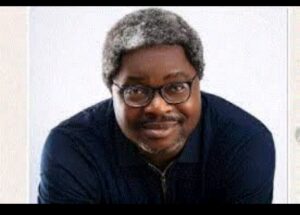Opinion: Of Lere Olayinka’s Tweet and the Politics of Media Mockery
 The increasingly sharp tone of political engagement on Nigeria’s social media landscape once again came to the fore following a tweet by Mr. Lere Olayinka, media aid to FCT Minister In what may be interpreted as both ridicule and political messaging, Olayinka wrote:
The increasingly sharp tone of political engagement on Nigeria’s social media landscape once again came to the fore following a tweet by Mr. Lere Olayinka, media aid to FCT Minister In what may be interpreted as both ridicule and political messaging, Olayinka wrote:
> “Good morning Egbon delete Momodu. When are you going to ARISE NEWS to attack Wike again? Just asking.”
This curt message, ostensibly directed at Mr. Dele Momodu, publisher of Ovation magazine and a key figure within Nigeria’s opposition party, raises troubling questions about the shrinking space for substantive political discourse in the country. While social media remains an open arena for expression, its increasing weaponization for political score-settling detracts from the real issues that affect the lives of millions of Nigerians.
At the heart of this incident is a broader concern: the trivialization of public debate and the personalisation of political commentary. The context of the tweet suggests displeasure with Mr. Momodu’s recent criticisms of the Minister of the Federal Capital Territory (FCT), Mr. Nyesom Wike. Mr. Momodu, appearing on Arise News, had taken aim at what he described as authoritarian tendencies and political bullying on the part of the minister. For this, he has been met with sarcastic ridicule rather than reasoned rebuttal.
To reduce such critique to “attacks” is to mischaracterise the role of public intellectuals and journalists in a democratic society. Nigeria’s fragile democracy requires robust debate, not ridicule. When political figures or their associates resort to ad hominem dismissals instead of addressing the substance of arguments raised, they do a disservice to public accountability and civic education.
Moreover, the reference to Arise News as a sort of battleground for personal vendettas undermines the credibility of a station that, despite its imperfections, has provided space for diverse voices. If its platforms are now viewed as arenas for elite brawling, then serious introspection is required—not just by the media but by the political class that patronises it.
Mr. Olayinka is certainly entitled to his views. However, it is important that individuals in his position former public office aides with significant influence do not contribute to the ongoing erosion of respectful political dialogue. Personal attacks, mockery, and sarcasm are no substitutes for well-reasoned discourse grounded in facts and policy.
In the final analysis, Nigerians are not served when public figures expend energy on ego battles and shadowboxing. With pressing national challenges ranging from insecurity and economic hardship to governance deficits, our collective focus should remain on issue-based engagement. Political communication must evolve beyond petty one-liners into a force for enlightenment, mobilisation, and constructive criticism.







